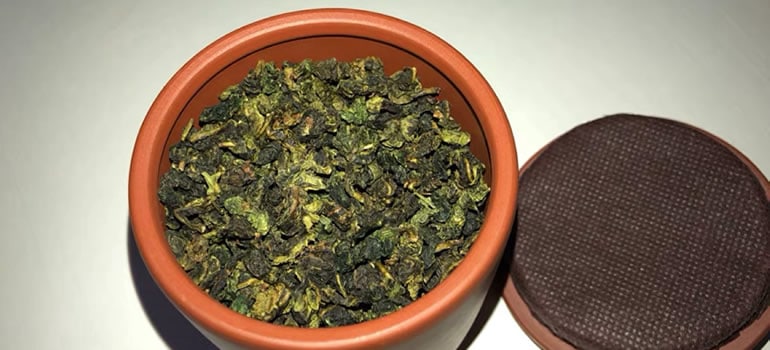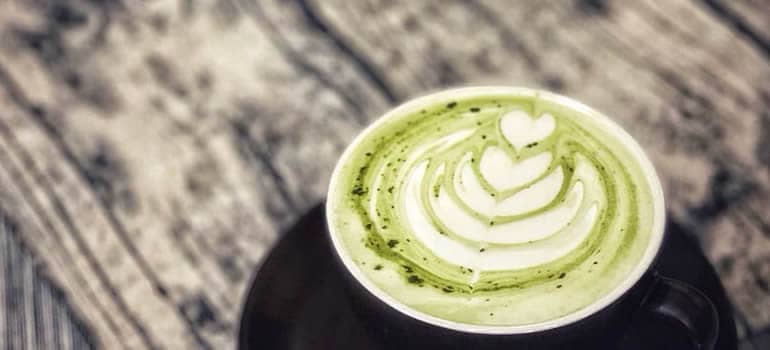Just like millions of Americans, you probably want to indulge in a cup of green tea every day for the many health benefits associated with it. This tea, which many think of as the elixir of life, originates from China where it is used as a medicinal herb. In the United States, it is used for its amazing health benefits, which include lowering the risk of certain cancers, improving brain function, helping with weight loss and even lowering blood pressure, to name a few. Most people who drink green tea regularly only enjoy the perks of it and that’s great, but there are those who have had a hard time getting used to their cup of green tea. Some newbies to green tea find themselves suffering unpleasant side effects, such as nausea.
Why does green tea make me nauseous? Green tea contains tannins that increase the acid content in the stomach and leads to nausea, diarrhea, and other digestive issues. Tips to avoid nausea when drinking green tea:
- Drink green tea in moderation – do not overdo it,
- Only brew green tea at temperatures between 160 and 180 degrees Fahrenheit,
- Do not drink tea on an empty stomach,
- Do not drink cold green tea,
- Do not drink green tea if you suffer an iron deficiency, are sensitive to caffeine or have pre-existing stomach conditions.

Just because you felt nauseous when you first started drinking green tea, it does not mean that it does not agree with you. You too can enjoy the various health benefits of drinking green tea, if you do it right. By changing how much you drink, how you brew it, and when you drink it, you can eliminate nausea from your green tea drinking equation. Many people want to drink tea without feeling nauseous and if you are one of these people, let’s unpack the above tips for avoiding nausea when drinking green tea so that you can get it right next time.
5 Tips to Avoid Getting Nauseous When Drinking Green Tea
If nausea has been getting you down and you have been thinking about ditching your regular cup of green tea because of it, think again. There are a few things that you can try to limit the possibility of feeling nauseous when you drink your favorite cup of green tea. Below are 5 tips to consider.
Let’s jump right into how you can drink green tea nausea-free.
1. Drink Green Tea in Moderation.
When it comes to green tea, there is such a thing as a “too much of a good thing”. Drinking too much green tea can make you feel sick, so the logical solution is to drink a little less. Up to 3 cups of green tea per day should be perfectly safe, although most aim for 2 cups to be on the safe side. Over indulging in green tea can lead to nausea due to the caffeine and tannins present in the tea. Green tea also has a cleansing effect on the system. Drinking too much green tea can lead to an upset stomach by irritating the bowel if you have too much of it. Have an “everything in moderation” approach to your consumption of green tea.
2. Only Brew Green Tea at 160 to 180 Degrees Fahrenheit
When it comes to brewing green tea, you have to do it just right. If you brew your green tea at temperatures above 180 degrees Fahrenheit, you stand the chance of releasing more tannin into the cup of tea. The stronger the cup of tea is, the more acid it will cause in the stomach once consumed and that’s bad news for you if you have a sensitive stomach. Drinking strong green tea that is brewed at high heat can lead to stomach and digestive problems such as acid reflux, nausea, and even constipation. Also keep in mind that studies show scalding tea can cause throat cancer as well as damage the digestive system.
3. Do Not Drink Green Tea on an Empty Stomach.
Most people who suffer from nausea when drinking green tea, find that it is because they are drinking their tea on an empty stomach. This usually happens when people are incorporating green tea as part of their weight loss program. Green tea increases the acidity in the stomach. An empty stomach already has high acidity. The best way to avoid getting nauseous when drinking green tea is to have your tea after a meal, or at least with a meal.
4. Do Not Drink Cold Green Tea.
We have already mentioned not having your tea to hot; now you are being told not to have it too cold. It’s a bit confusing, right? The trick is to find the perfect balance when making a cup of green tea. You need to brew it at a temperature that is not too hot, and not too cold. While there seems to be no supporting scientific data behind this, many green tea resources mention that a good cup of green tea is best consumed moments after it has brewed while it is still quite hot (but not scalding). Allowing the green tea to go cold puts it at risk of losing its nutritional value and is also reported to make people feel nauseous. Drink your green tea hot and it could eliminate the nausea problem for you.
5. Do Not Drink Green Tea If You Have Iron Deficiency, Caffeine Sensitivity and Pre-Existing Stomach Conditions.
Unfortunately, because green tea causes an increase in the acid in the stomach, it is not good for everyone. It is highly recommended to avoid drinking green tea if you have any of the following conditions (or at least only consume a very limited amount of it):
- Iron Deficiency.
People who have an iron deficiency are unable to absorb regular amounts of iron from food sources. Unfortunately, green tea can exacerbate this problem by reducing iron absorption even more. It can also reduce non-heme iron (from eggs, beans etc.) absorption by around 25%. Adding a dose of vitamin C to your green tea (perhaps a squeeze of fresh lemon) can increase non-heme iron absorption. If you have an iron deficiency, you can still drink green tea, but drink this long after having your meals with iron content. Drinking the green tea with your meal will stop the body immediately absorbing the nutrients.
- Caffeine Sensitivity.
For some, the day doesn’t begin without a double dose of caffeine. For others, it’s the opposite – they live a caffeine free lifestyle. Caffeine is a staple menu item for many people, but for those with sensitivity to it, it cannot be consumed every day or in high quantities. People with caffeine sensitivity that drink green tea can suffer from irregular heart rhythms, shaking, nervousness, and anxiety. If you are sensitive to caffeine but still want to drink green tea, limit yourself to one cup a day in the morning.
- Pre-Existing Stomach Conditions.
Again, the reason why green tea upsets certain people’s stomachs is because of the tannins in the tea which increase stomach acid content. When people who already have stomach conditions drink green tea, they can suffer from stomach aches, nausea, vomiting, and even constipation. However, some studies say that adding a dash of milk and sugar to green tea can reduce the production of excess acid in the stomach. That being said, if you have any of the following stomach problems, do not drink green tea: peptic ulcers, irritable bowel syndrome, and acid reflux.
Conclusion
If you want to know why green tea makes you nauseous, it is probably nothing to worry too much about. Many people panic and think that the green tea is doing something bad to them or that they are not compatible with the green tea. That is not often the case at all. Often it is just a case of adjusting your green tea drinking “rituals”. Just change how and when you drink your green tea along with how much you drink and you can start enjoying your green tea intake sans nausea and with a smile on your face.
Resources:
https://www.practo.com/healthfeed/green-tea-side-effects-and-who-must-avoid-it-3626/post
https://www.cupandleaf.com/blog/green-tea-side-effects




